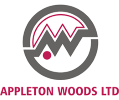Dr Eliot Barson is now our new Reagent sales person!
We are pleased to announce the appointment of Dr. Eliot Barson to reagent salesperson!
Eliot joined the team in March 2022 as our Northern UK Account Manager, moving from a career in academia as a lecturer and researcher. After 18 months as the Northern UK Account Manager, Eliot has now transitioned into a new role managing our Reagent Portfolio, effective 1st October 2023.
Read on to find out how Eliot’s technical expertise can assist you with your research.
1.What did your research focus on, Eliot?
I completed my PhD at Coventry University. My research involved investigating the role of tight junction proteins in the progression of hepatocellular carcinoma.
On completion of my PhD, I was offered to continue as a lecturer. Here I could continue research, especially through my students investigating stem cell therapies, inflammation, and biotechnology product development. This research is still ongoing through my research students. My research formed the basis of my teaching and course directorship, teaching cell, molecular and lab skills modules.
2. How does your scientific background assist our customers with their technical enquiries?
At Appleton Woods, my goal is to develop working relationships with our customers to recommend the best products for their requirements. My previous career as a lecturer and researcher within a lab has equipped me well to discuss which specific products are best for our customers. In the lab, I routinely undertook 2D & 3D cell culture, qPCR, lentiviral transduction, and invasion assays, and I am looking forward to showcasing the Appleton Woods reagent portfolio to our customers.
3.What would be your top product picks for cell and molecular biology?
My Top Picks for Cell Culture
Here at Appleton Woods, we supply novel 3D scaffolds from Copner Biotech, which provide a physiologically relevant environment to mimic in vivo conditions for cells. I would recommend this product to anyone looking to get started in 3D cell culture as it is competitively priced, and overcomes necrotic cores forming and interconnecting pores forming a much more complex structure without optimisation.
For anyone who undertakes cell culture routinely, the Corning Matrigel Matrix is always a product that will be mentioned. It is the most widely used extracellular matrix in publication, which can be used for 2D and 3D cell cultures. Matrigel is the gold standard for cellular differentiation, angiogenesis, tumour and invasion.
To make your work more sustainable, FBS Xtra from Capricorn Scientific is the ideal solution due to its significantly reduced serum content. The sera are supplemented with a proprietary blend of growth components which are optimised for complete cell growth with minimal batch-to-batch variation. This next-generation FBS offers a better-priced, more sustainable and enhanced solution for your work.
My Top Picks for Molecular Biology
For RNA extraction, I would recommend the BioEcho RNA extraction kits. The kits use up to 60% less plastic and no hazardous reagents, enabling you to extract high-quality RNA more sustainably. BioEcho has reimagined the single-step purification column, which prevents carry-over contaminants and inhibitors of downstream applications. BioEcho has a complete sustainable range for DNA extraction from multiple tissue types as well!
For reverse transcription and PCR, the Appleton molecular reagents offer superior quality and are great value for money. appSCRIPT cDNA synthesis kit and appGREEN qPCR reagents are all manufactured in the UK which reduces the time you wait for your orders! The PCR range from Appleton offers the latest advancements in PCR technology with non-inhibiting intercalating dyes, early detection of Ct values due to the rapid extension rate and use on all thermal cyclers.
4. During your time as a lecturer, would any of the products we supply have made research easier for the students you were teaching?
For my teaching, the products from Appleton Woods would have provided quicker processes which would have allowed for more focus on important pedagogical aspects of the lab. For one of my labs, the students extracted genomic DNA and performed serval assays on the material they extracted.
The Buccal Swab DNA Kit from BioEcho would have reduced centrifuge load speeding up the ability to process samples without carryover. The appHIFI high fidelity taq would have lessened the burden on assay development as it can work in high GC% regions and is tolerant to traditional PCR inhibitors. With these products, the work would have also been more sustainable as the extraction kit uses up to 70% less plastic and the reagents are produced in the UK. The time saved would have allowed for better focus on the professional development of the students rather than performing cumbersome tasks.
5. If you had to choose one product from the Appleton Woods portfolio, which product would be your favourite?
This is a difficult question many of the products above were my tried and tested favourites. A new product of Appleton Woods the Rapid MycoPlasma Detection Kit by MycoGenie would have saved the lab many hours of burdensome pipetting and gels. This assay kit only requires to be incubated for an hour and then you can visibly see if mycoplasma is present. The kit is extremely sensitive and can detect as little as 500cfu Mycoplasma per 1ul of cell culture supernatant highlighting any issues early during contamination.



Leave a Reply
You must be logged in to post a comment.